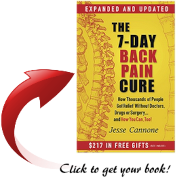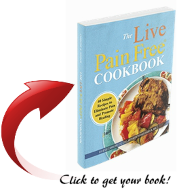Results of current medical and scientific research have revealed a link between the “bad” kind of inflammation (aka low-grade, chronic or systemic inflammation) and chronic pain. Dr. Fred Tabung mentioned on an article on the site Harvard Health Publishing (Harvard Medical School) that “chronic pain is the result of chronic inflammation”. Dr. Tabung is a researcher at T.H. Chan School of Public Health at Harvard’s Department of Nutrition. The following article, written by guest author Holli Richardson, explains what systemic inflammation is, how it affects your body, and what you can do to minimize toxicity at the cellular level. She addresses it from a whole body perspective. I thoroughly enjoyed reading her article, as it provided a ton of valuable content. I believe you will also benefit from the information provided in this article.
 Photo by JESHOOTS.com from Pexels
Photo by JESHOOTS.com from Pexels
Many of us live with a condition we actually know very little about. This condition can lead to all kinds of problems, but thankfully, it can be treated. That condition is called systemic inflammation, and here is what you need to know to manage it.
Systemic Inflammation
All bodies, at some point, experience inflammation. In short, our blood vessels swell to help the immune system go into overdrive and attack invading pathogens or damaged cells. However, it becomes systemic when it doesn’t go back down and remains swollen for a long period of time. Unfortunately, some of the foods we consume — especially in American cuisine — are heavy in properties that contribute to systemic inflammation. Worse, their impact is not only limited to increased inflammation — it can stop the effects of anti-inflammatory foods, too.
The Dangers of Systemic Inflammation
Systemic inflammation is easy to ignore up to a point. Eventually, it leads to a host of conditions, including common afflictions like chronic tiredness, to more devastating illnesses in the form of autoimmune diseases and hormone imbalance. Moreover, inflammation can go down to a cellular level; cells can swell and die off or replicate in unhealthy ways, leading to worrying growths. Given that, it’s all the more important that you support yourself by minimizing toxicity at the cellular level to maintain full health. Thankfully, there are some simple ways to do just that.
Start with Your Gut
One method to lower inflammation is to start with your gut health. When your stomach is in a poor state, inflammation can worsen. Yet, the microbiome within the gut (also called your second brain) is filled with bacteria that bolster health and help with digestion. However, your gut health is relatively delicate and is impacted by many factors, including your diet. In fact, by eating fat-heavy foods that lack fiber, we may seriously damage our good bacteria. This can go on to impact your emotional wellness and immune system, which might influence levels of inflammation. To protect yourself and your gut, you can incorporate probiotics and prebiotics into your daily routine; these should keep the good bacteria healthy and your body in good order.
Ditch Unhealthy Habits
While we all have habits that we know aren’t exactly healthy, some are worse than others. If you smoke regularly or drink heavily, you could be putting yourself at risk of systemic inflammation. After all, your brain is one of the first things to feel the impact, increasing neural damage that contributes to the severity of inflammation. So, no matter how difficult it may be, it’s in our best interest to cut back on these habits. Yes, one or two drinks now and again isn’t going to be devastating but take steps to limit your consumption. Of course, smoking is more addictive, but quitting improves your health in a multitude of ways and cannot be underscored enough.
Supplements
Other than taking probiotics and prebiotics, there are supplements you can use to reduce inflammation. Still, it’s vital to do your research, as each supplement treats a different cause of inflammation, and so all may not work effectively for you. For instance, omega-3 fatty acids fight inflammation in the heart, reducing your chances of heart disease and heart attack. Yet, that might not have a positive impact on you if your inflammation stems from obesity or even hyperglycemia; in such cases, curcumin and ginger are your best sources. With the right supplement, you can dramatically reduce inflammation and your risk of cancer.
With how dangerous systemic inflammation can be, it makes sense to take steps to limit it. By watching your gut health, getting rid of bad habits and adding supplements where needed, you can do just that. Aim for a healthier tomorrow by starting today.
<<<<<<<<<<<<<<<<<<<< >>>>>>>>>>>>>>>>>>>>
I would like the thank Holli for sharing her valuable content with us, and providing practical information about managing systemic inflammation and the problems it causes in our bodies. She mentioned that it’s a subject that many people misunderstand and, as a result, fail to address. With her daily challenges with migraines, Holli reached out to a holistic medicine practitioner and finally found some help. After experiencing nothing short of a miracle, she started incorporating holistic health into her daily routine and sharing what she learned with others.



